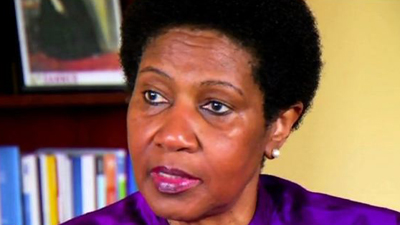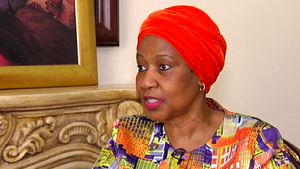Honouring the provisions for women, in particular the 35% guarantee for their representation across the executive arm and pre-transitional institutions, will be crucial to achieving a lasting peace in South Sudan.
That was the message delivered to the United Nations (UN) Security Council after a joint visit by the African Union (AU) Commission and the UN’s Department of Peacekeeping Operations and UN Women in early October.
The joint-visit was part of the two organisations role as guarantors of the Revitalized Agreement on the Resolution of the Conflict in South Sudan which was signed on September 12 in Addis Ababa.
As part of the three-day visit last month, the delegation met with stakeholders from the ground up, particularly women who’ve borne the brunt of the almost five year civil war.
The Secretary General for Peacekeeping Operations at the UN Jean-Pierre La Croix says, “Our consultations in the country were telling in this regard. While hopeful, the confidence of the women we spoke to in Bentiu, both from the town and the Protection of Civilians site, was low. They noted that despite the Agreement, their families were still falling victim to the violence. They stressed that this is not their war; they appealed to us and their leaders not to forget them; to create a protective environment; and to ensure that women are included as key actors in the full implementation of the agreement.”
While the delegation pointed to the slow implementation of transitional agreements, they welcomed the participation of opposition leader Riek Machar at peace celebrations in Juba on October 31st, an event where President Salva Kiir apologised to the people of South Sudan for the immense suffering exacted by the conflict. Notwithstanding some confidence building measures, concerns remain that there can be no viable, sustainable peace unless parties adhere to the permanent ceasefire amidst reports that sporadic clashes in certain areas continue.
“The country’s leaders and the parties will have to demonstrate their genuine commitment to make difficult decisions and compromises for its effective implementation. In this respect, I cannot overemphasize the crucial role of the Security Council, the African Union, IGAD and the region to continue to hold the parties accountable and ensure that they abide by their obligations under the agreement. It is clear that the solution to the conflict in South Sudan can only be political, and not through military action,” says Kiir.
A 35% quota of women’s representation across the Executive arm, the Council of Ministers and pre-transitional institutions continues to fall short with women on the ground raising the alarm as UN Women’s Executive Director Phumzile Mlambo-Ngucka highlighted in the council.
“Of the new bodies, National Pre-Transitional Committee (NPTC) has one woman out of 10 members (10%), The National Constitution Amendment Committee 2 out of 15 (13%), No women in the Independent Boundaries Commission and the Technical Boundaries Commission or the Joint Transitional Security Committee. The Ceasefire and Transitional Security Arrangements Monitoring, Verification Mechanism is expected also to have 31% of women. None of the currently formed institutions meet the 35% quota. This is important not to miss out, it is important to take correctional actions. Excellencies, this is where you come in, you can be of support, you can encourage the parties to ensure that women are included,” says Mlambo-Ngucka
The AU, for its part, says the parties are more serious about implementing the current agreements.
Peace and Security Commissioner Smail Chergui says, “The AU Commission believes that this agreement offers to South Sudanese a unique window of opportunity to deliver an inclusive, lasting and just peace. However, as my colleague mentioned, both the AU and the UN are very much aware of the skepticism surrounding the ability of the parties to deliver on their commitments. As a result some international partners are yet to sign as guarantors. However, as AU and UN, we felt duty bound to engage the government of South Sudan at the highest level possible and emphasize the need for the full implementation of this agreement and the importance of women representation in the peace process.”
New estimates suggest that some 400 000 people died during the civil war, far higher than previously reported – while causing displacement of 2 million internally with an additional 2.5 million fleeing into neighbouring countries as refugees.






